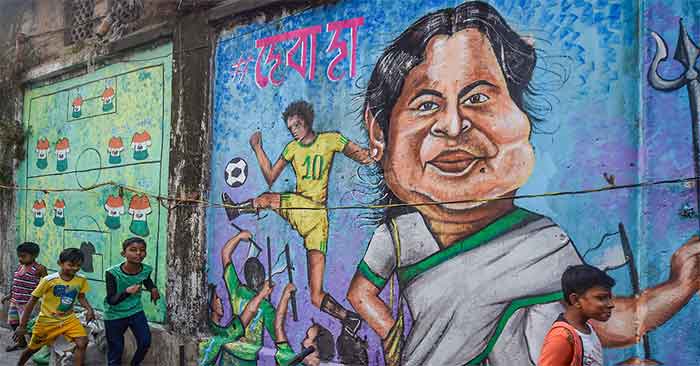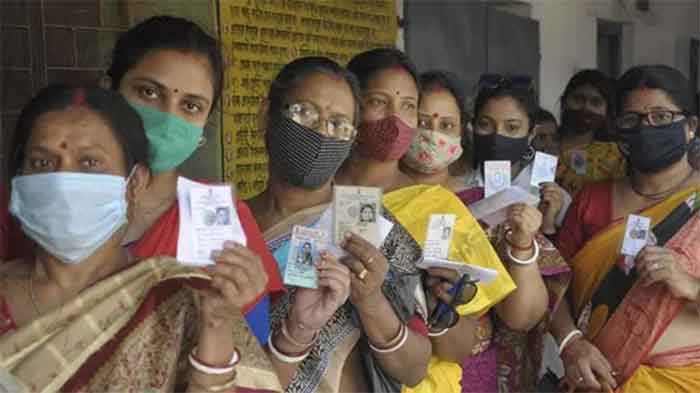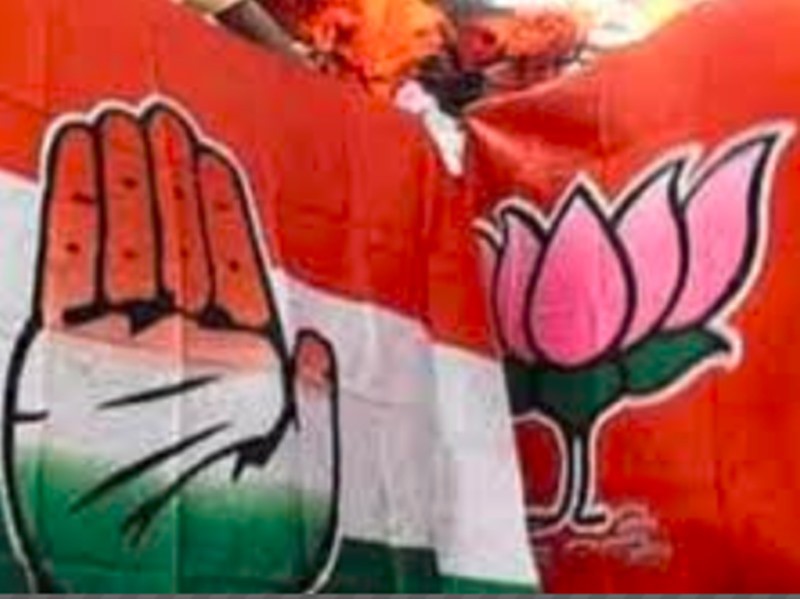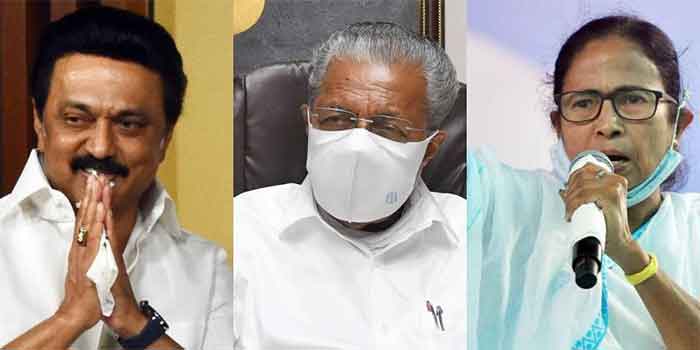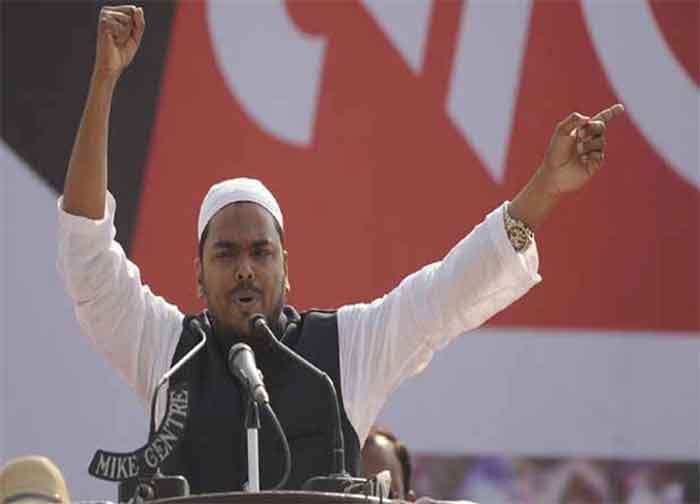
“The name of the bait is ‘muslim”, the fishhook is ‘NRC’, and the fish is ‘indigent people’. Do you understand?”- Speaker? Pirzada Abbas Siddiqui. The phenomenal cleric, in a multitude of rallies tried to explain the dangers of citizenship law to the so-called marginalized people of Bengal in a lucid homely tone. However, Abbas’s meteoric rise has increased the discomfort of the ‘enlightened’ middle class, the highly educated, snobbish ‘bhadralok’ periphery manifold. The farmers become khalistani if they want a fair price for her crop, the student becomes a member of ‘tukde tukde gang’ if they protest against privatization of education, and being a secular? As per the common narrative, it is only the privilege of the Hindus. How can a Muslim cleric be secular? He must stir religious bigotry- something which will inadvertently benefit BJP. But once Abbas started to play the other way round, things started to change rapidly.
He ought to be a flagitious individual. At least past two lectures of Abbas proves that argument. One, accusing China of atrocities against Muslim. Another disputed comment he made against TMC M.P Nusrat Jahan, few years ago. One can agree with the critics of Abbas in this regard. It is completely acceptable that Abbas becomes enraged when someone ridicules his religion. He does not understand European enlightenment. He has never heard of Nicaraguan Marxist, poet, revolutionary, liberation theologist Ernesto Cardenal. He doesn’t know Camilo Torres. He doesn’t know that Fredrich Engels noticed a revolutionary character of Islam during its development, in the conflict between the impoverished Bedouins and rich Quraysh. Does this mean that Jesus or Prophet Muhammad can be called the leader of a people’s democratic revolution? No, Abbas doesn’t even know this. His Bengali dialect is neither elegant nor sophisticated. Yet, what pulls innumerable people to attend his meetings? Only Islam? The answer is a big NO. In a bid to smash the fakery of the so called minority development narrative woven around incumbent chief minister of the land Mamata Banerjee, Abbas loudly states- “ She has done nothing but taking advantage of rampant illiteracy prevailing among our community, she has criminalised the lot. She is giving out doles to the imams instead of giving jobs to their children. As a result, BJP is easily polarizing the land. Never before 2011, would Durga Puja in Bengal be stopped to make way for a Muharram rally. But our beloved didi has done that, delivering a crucial poll plank to the BJP.”
Now come to Abbas’s party ISF. One of the two office bearers of his party is a Muslim and the other is a tribal Hindu. In spite of that, secular pundits, liberal intellectuals as well as a section of leftist scholars have unanimously stated that ISF is a communal entity. Even if for the sake of an argument, we come to terms that ISF is essentially a Muslim dominated organization, is it an unforgivable ‘crime’ for the Muslims to form their own political platform? Is it against the law of the land, if they commit nothing to disrupt communal harmony? the fact is that the spread of the Hindutva has reached such a stage in the society that if a man having a beard and skull cap joins politics he is being ostracized. Is it communal if a person is religious? Gandhi was religious. Was he communal? Congress has a core commitment to religious/ethnic pluralism, though not necessarily to secularism in the sense of a clear separation of church and state. To the extent that racial or ethnic exclusivism is a core feature of Fascism, Congress is anti-fascist. It is as prone to fascist-type authoritarianism as any other political formation, e.g. Congress under Indira Gandhi. It makes all kinds of compromises with identity exclusivism. Congress killed Sikhs in ’84. It also made a Sikh the PM. It is not ideologically anti-Sikh.
It is true that some of the old speeches of Abbas are completely feudal and deserve severe criticism, but is also not very difficult to understand that his political maturity and outward consciousness has changed radically after the formation of the outfit. This is because of his rapid realization of the reality of a multidimensional society without vanity. As long as his party speaks for minority, tribal, marginal people and secularism, refutes religious doles- until then there is no valid ground to object his politics. The so called upper-caste Hindu dominance in Bengal politics, and it’s baggage of soft or extreme communal binary division has been broken by Abbas. The political aspiration of the mass, whom Abbas is representing includes a section of the poor Muslim and Tribals, those who consider themselves not only victims of deprivation, but also victims of deception. It is very natural for them to think so, because every main stream party is in the grip of upper caste elites.
A major problem of the Muslims in Bengal is the lack of social capital. After the partition, big businessmen who were the supporters of Muslim League left for Pakistan and the Muslim community dependent parties did not get any patronage. Although some Muslim entrepreneurs were born much latter, they concentrated on mainstream liberal politics. Another problem is the lack of organic intellectuals with political aspirations among Muslims. Once he becomes intellectual he no longer wants to maintain his Muslim identity. In this situation, this is not only difficult, but almost impossible for a political party, based on Muslim identity to flourish in Bengal. In fact, Abbas also did not try that. That is why a front has been formed in the course of journey from being a religious leader to a political leader, where Muslim, Dalit, Brahmin – all got a place in candidate list.
Aristotle termed politics as the best science, because politics is one of the special strategies, in fact a decision, subject to power which resolves disputes. How it is possible to resolve this dispute is well explained by David Easton- “authoritative allocation of values”. From then on politics means “policy” and its determination. Who does that? Legitimate authority does that. The question may be, even if authority is legal in a country like ours, how legitimate are their actions? What if they come to power and turn the people from citizens to tenants or beggars? Over the last ten years a particular community is constantly forced to prove their patriotism, answer questions like what they will eat, who they will love. The ‘legitimate” government has taken the ‘test”.
Abbas has actually pulled out the hidden islamophobia deep in our minds. From the time of the renaissance, latent islamophobia has remained in our minds. No one wanted or could understand the Muslim mind and their thinking. The young turks who formed a party in Tashkent, even in that, far from being its general secretary, even in the central committee, Muslims remained as the only ‘other”. The situation was same in its three state branches. There were Brahmins, there were Kayasthas, and even a ‘Santhal’ was also there. But where were the Muslims? Educated elegant Bengali people love to read Gramsci’s Subaltern theory only in the pages. They feel extreme discomfort when it comes to their doorstep (praxis).
Yes, Abbas has a past. But his present is very crucial at this juncture. What the future holds? Only time will tell that!
Sourav Goswami is Mphil research scholar, Jadavpur University, dept of International Relations. Junior Journalist in a regional Marxist daily
GET COUNTERCURRENTS DAILY NEWSLETTER STRAIGHT TO YOUR INBOX

